By David Whitty
Pumwani in the Kenyan capital, Nairobi, is known for its high crime rate
Pumwani is a poor area of Nairobi. Crime is common in its crowded, busy streets.
But speaking to residents over a period of days I heard a number of families claim that their young sons had been shot and killed by the police for committing small crimes, or even shot for no known reason.
The police deny that there is an unofficial "shoot to kill" policy.
Maryam Awadh, a grandmother and market trader, told me that her 22-year-old son Mahamud was trying to steal some wing mirrors off a car, on 23 November 2012, when the police started chasing him.
"He started running to try and reach me here in the market, but the police shot him in the legs," she said.
As a crowd gathered, someone phoned Mahamud's eldest brother to tell him what was happening.
I met him a few streets away from Maryam's stall, and he told me about that phone call.
"The eyewitness was telling me that the police were chasing the crowd away when I heard three gunshots," he said.
But when Mahamud's family collected his bloody body from the back of a police van at the station headquarters in Pumwani they discovered that it had seven bullet wounds.
Mahamud left behind three young children.
"How can the police become the judge, the jury and prosecutor at the same time... sentencing people to death for small crimes?" asked Mahamud's brother.
As we sat talking by a busy road with slow-moving cars, I saw why many people avoid Pumwani.
Two boys aged around 10 went either side of a car stuck in traffic. One distracted the driver while the other reached in and stole a mobile phone from the passenger seat.
"If the police had seen that they would have shot those boys," said Mahamud's brother as the boys melted into the crowd, and the windows of the car were rapidly closed, too late.
Shot six times
Not all those said to have died from police bullets were suspected criminals.
On 9 July 2011, 20-year-old Ibrahim Kanyiri happened upon a commotion at the marketplace when police started whipping the crowd to move them back.
His sister, Asha, sitting outside her small shack on a muddy alley, paused from peeling a bucket of potatoes to tell me what happened next.
"My brother was short-tempered, and so when the police started whipping him, he fought back. When the policeman saw Ibrahim was getting the better of him, he pulled out his gun and shot my brother six times".
Tears rolled down her face as she remembered her younger brother.
"The police lack any humanity. It is not only my brother who has been shot in cold blood by the police, a lot of my neighbours here have lost their boys."
A phrase I heard often - "so many young men have been killed by the police".
No official record
Pumwani is a close-knit place, where everybody knows everybody. As you pick your way carefully through its muddy lanes, greetings are constantly called out to passersby from doorways.
"We are one big family," one teenager told me, and so every death is collectively remembered.
But relatives say the deaths are not recorded officially by police so there is no evidence and no list of the victims' names. And eyewitnesses are too scared to come forward to testify.
One man who says he can estimate the total number killed by the police is Jusuf, the undertaker at the mosque. That is because he cleans and prepares all the bodies for burial.
He says that "492 young men have been killed by the police in Pumwani since 1982", adding: "Some bodies have four bullet wounds, some eight, some even 12. When they try to surrender and put their hands up they are sometimes shot in the joints of the elbows, so they cannot raise their hands."
I was given the names of the policemen involved in the alleged shootings by those families I spoke to, because people know all the police by name, and there are always many eyewitnesses. But I was told the policemen are often transferred elsewhere after a shooting incident.
One father I spoke to, Isaac Ouna, confronted the officer he says was responsible for killing his 17-year-old son, Ali Lubanga Ouna, on 27 August 2007.
"He was shopping for his grandmother when he was shot by the police five times. To this day I still don't know why he was killed because he was a good boy, never involved in crime. He even used to clean the police cars, and sweep the station offices.
"I spoke to the officer responsible, and he agreed that he was the one who shot Ali, but there is nothing I can do to him. And then the officer was transferred so I never saw him again."
Isaac said he had seen the station incident book and Ali's death wasn't recorded. He also said every time he had tried to get justice, he was chased away from the station.
Isaac has to look at the police station every day because his stall, selling a meagre collection of single cigarettes and juices, stands opposite it, across a muddy junction where buses stop to pick up passengers.
It is the base for the Administrative Police, who locals accuse of being trigger happy.
They told me that the police wouldn't speak to me.
"Everyone knows a BBC journalist is asking questions in Pumwani, which means all the police informers know too", they said.
'Those killed had guns'
But on my second attempt to gain entry to the station I was granted an interview with station commander Mohammed Kusola.
"No police officer is above the law," Commander Kusola told me.
When I told him of the allegations I'd heard about policemen from his station killing young men from Pumwani, he said: "That is not true, at all."
When I directly asked him whether there was a shoot-to-kill policy of petty criminals in Pumwani, he emphatically replied: "Never! All those killed had guns. They were asked to surrender and they did not."
I asked him whether the police could shoot if they asked you to surrender and you ran away.
"If you ran away with what?" asked Commander Kusola.
"Some stolen wing mirrors?"
"That's a very petty crime, a police officer cannot use a gun for that," he replied.
"What about if you have a physical fight with a police officer, can he shoot you in response?"
"He cannot," Commander Kusola said.
He let me look through the incident book for fatal shootings by police in the past 12 months, but I found no mention of the killing of Mahamud Awadh last November.
'Crime is going up'
The police in Kenya do shoot armed criminals dead. There are almost daily incidents reported in the newspapers.
The Pumwani police station records show that, just in this area of Nairobi alone, four armed criminals were killed by police between 24 October and 12 November 2013.
But Asha says the use of lethal force by the police is not making Pumwani a safer place.
"Here there is crime, you cannot deny that. The police use shooting as a way of eliminating crime. But instead of the crime going down, it is going up."
And Jusuf, the undertaker, believes his work of preparing and washing the bodies of young people from Pumwani will not change any time soon.
"I have washed the bodies of five young men shot by the police this year alone. The youngest I have seen was just eight years old. These days in Pumwani we are burying young boys instead of burying old men."
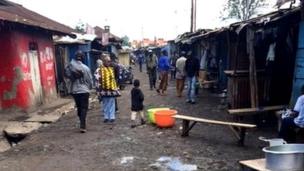
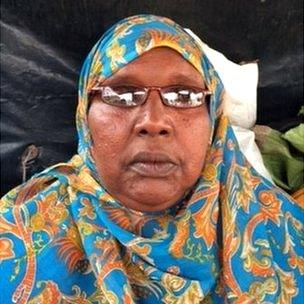
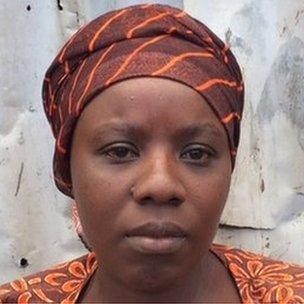
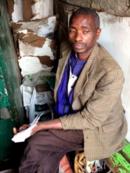
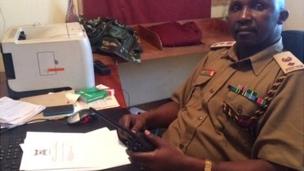
No comments:
Post a Comment